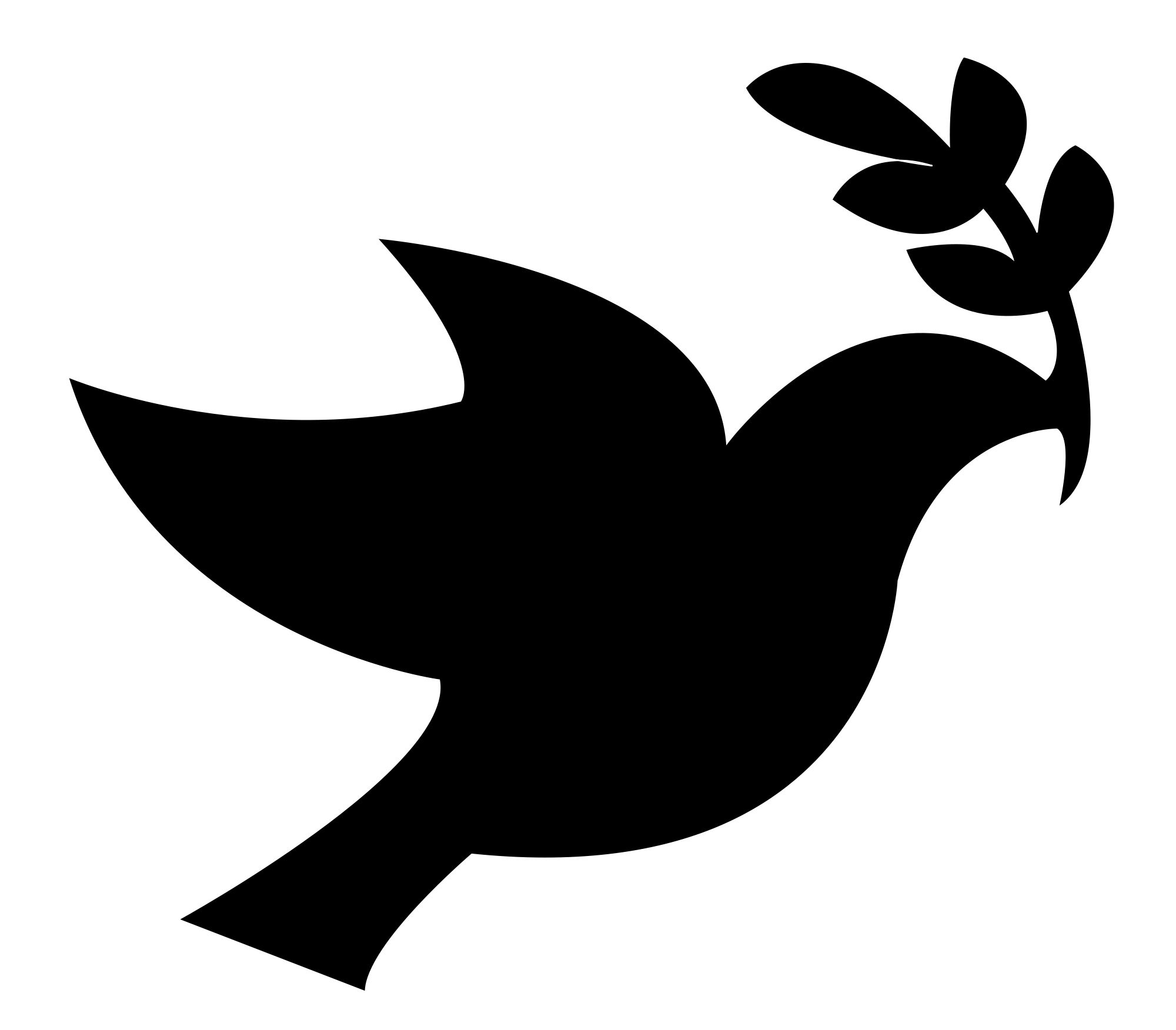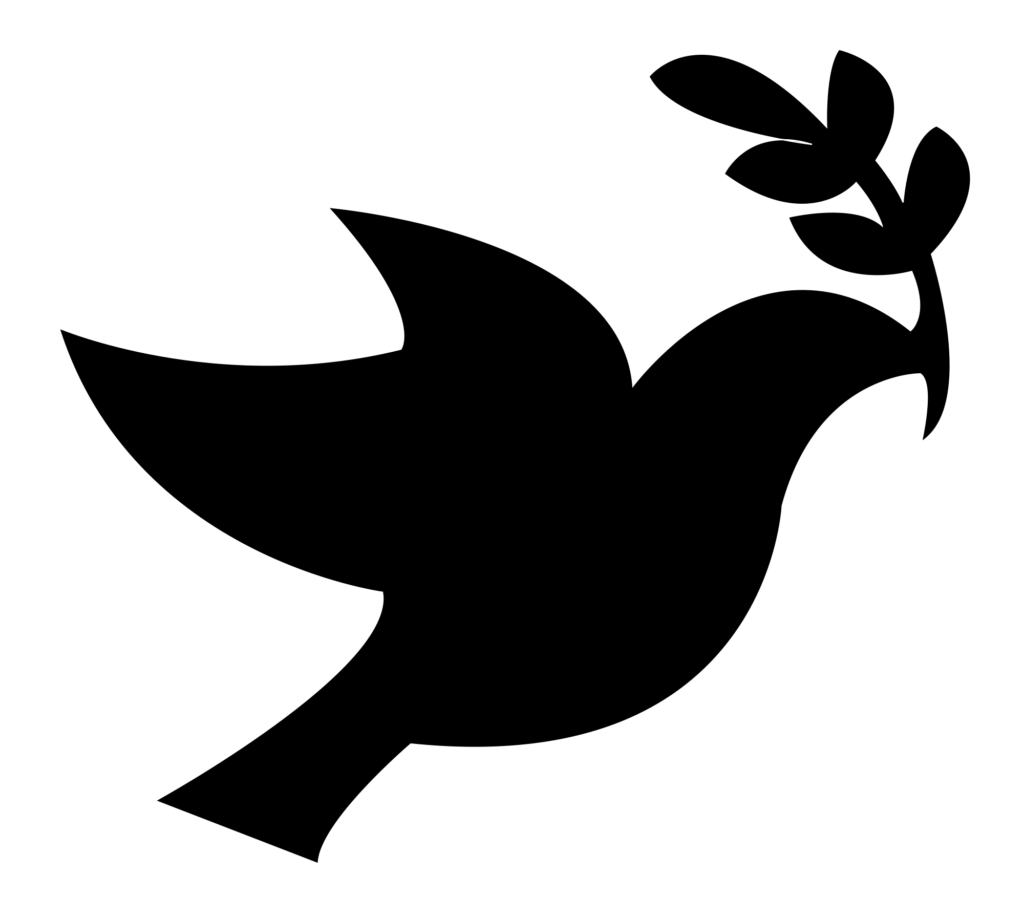Development and Security Rely on Peace, Justice and Inclusion
A shared statement by peacebuilding organizations
International Day of Peace, 21 September 2018
 If current trends persist, by 2030 more than half of the world’s poor will be living in countries affected by high levels of violence. Yet, resources devoted to peacebuilding and prevention represent only a fraction of those for crisis response and reconstruction. Similarly, while the new international frameworks for development, humanitarian action, and peace and security have highlighted the need to focus on peace, justice and inclusion, little has changed in practice.
If current trends persist, by 2030 more than half of the world’s poor will be living in countries affected by high levels of violence. Yet, resources devoted to peacebuilding and prevention represent only a fraction of those for crisis response and reconstruction. Similarly, while the new international frameworks for development, humanitarian action, and peace and security have highlighted the need to focus on peace, justice and inclusion, little has changed in practice.
Member States have affirmed the centrality of peace and prevention, first through their commitment to “foster peaceful, just and inclusive societies” in the 2030 Agenda, and then with the twin resolutions on Peacebuilding and Sustaining Peace. Recent research and analysis, including the UN World Bank study Pathways for Peace: Inclusive Approaches to Preventing Violent Conflict and the new report The Missing Peace: Independent Progress Study on Youth, Peace and Security, have reaffirmed the necessity of mechanisms for addressing difference and grievances, of strengthening social resilience, and supporting processes that increase trust and inclusion.
Despite this growing body of evidence, in many cases governments are pursuing security using militarized approaches, either in the absence of, or in isolation from, policies that decrease exclusion and inequality – core drivers of conflict. This has been accompanied by an eroding commitment to long-term multilateral approaches to global challenges. Rather than embracing diversity, many governments are actively seeking to shrink the already limited space available to civil society actors, locally, nationally and in international settings. If we are to have a hope of eliminating extreme poverty, fostering sustainably peaceful and prosperous societies worldwide, and addressing conflict and its roots, then governments need to urgently re-align their priorities.
The 73rd session of the UN General Assembly provides many opportunities for Member States to re-commit to peace. The year begins with the 70th anniversary of the Universal Declaration of Human Rights and the convening of the Nelson Mandela Peace Summit. It will then include an interim report by the UN Secretary-General on implementing peacebuilding and sustaining peace, and the High Level Political Forum where SDG16 will be reviewed. The year will also see an increasing focus on preparations for the 74th session, which will feature the quadrennial 2030 Agenda Summit and the comprehensive review of the UN Peacebuilding Architecture.
As organizations devoted to the building of peace around the world, we call on the international community to take these steps:
- Fully embrace the commitments to peace in the 2030 Agenda: One of the main achievements of the 2030 Agenda was to commit to a radically different approach to development in conflict-affected and transitional environments, where the traditional approaches of the MDGs had largely failed. Fostering inclusion, ensuring access to justice, strengthening the social fabric and delivering good governance have repeatedly been shown to be essential to achieving development outcomes. Progress against the 36 targets across the 2030 Agenda that are necessary to achieve peace, justice and inclusion needs to be highlighted in all SDG reporting at all levels, reflecting the role of peace as an indispensable condition of development.
- Reaffirm a commitment to human rights, the foundation for human dignity and just societies: The theme for this year’s International Day of Peace is The Right to Peace – the Universal Declaration of Human Rights at 70. Human rights, including economic, social and cultural rights, are the foundation of a world order based on equality and inclusion, and are the ultimate yardstick against which we can measure the 2030 Agenda aspiration of ‘no-one left behind’. It is time for Member States to fully commit to the equal importance of the three UN pillars of development, human rights and peace and security, and to support efforts to mainstream and integrate human rights norms, tools and methods.
- Foster social resilience by strengthening inclusion and addressing inequality: Peace issues are core to the discussion of resilience. Resilient societies are those where the social fabric is strong. They are just and inclusive, where the relationships between individuals, their communities and the state are based on trust and the respect, protection and fulfillment of everyone’s human rights, and where there are robust mechanisms for addressing inequalities, difference and grievance. Fostering resilience is the foundation of long-term preventive efforts, from preventing conflict to reducing the impact of internal and external crises, natural and man-made, and requires action both to accompany local efforts and also to provide a supportive international environment.
- Think local and act global: recommit to multilateralism as a safeguard for the most vulnerable: National implementation alone will not suffice to achieve the SDGs: 40% of the SDG16+ targets require implementation at regional and international levels. This is particularly the case with issues of peace, where fostering the external drivers of peace, justice and inclusion requires concerted action by states, as duty holders, to support responsible trade, reduce arms flows, promote constructive financial, tax and investment practices, and to strengthen a rules-based system that creates a more effective enabling environment that privileges the long-term peace, development and human rights needs of all people and communities.
- Protect and support civil society in fostering sustainable peace: Social, political and economic changes that contribute to increasing peace are more robust if they are owned, implemented and sustained by local actors, including youth and women. Nevertheless, civil society inclusion continues to be under threat around the world, with onerous restrictions imposed on the ability of civil society groups to be effective, speak out and access funding. We call on Member States to recommit their support for and partnership with local and community actors, and for the UN system to model inclusion in all its local and global processes.
Signed,
AFRICAN YOUTH ACTION NETWORK – AYAN
Africans Rising for Justice, Peace, and Dignity
AfroLeadership
Alliance for Peacebuilding
American Friends Service Committee
Asian Academy for Peace, Research and Development, Kathmandu, Nepal
Association for the Promotion of Sustainable Development, India
Baha’I International Community
Bangladesh Model Youth Parliament
Canadian Friends Service Committee
CDA Collaborative Learning
Center on International Cooperation
Centre de Défense des Droits de l’Homme et Démocratie (CDHD)
Centre for Peace and Conflict Studies, Cambodia
Centre for Sustainable Development and Education in Africa
ChildFund Alliance
Christian Aid
Church of the Brethren
CIS Timor – Circle Imagine of Society Timor Association of Volunteers
Civil Society Network that Cares About Sharia
Civil Society Platform for Peacebuilding and Statebuilding
Community of Peace Makers Kupang (KOMPAK)
Conciliation Resources
Cordaid
Council for International Conflict Resolution (RIKO)
Dag Hammarskjöld Foundation
Friends Committee on National Legislation
FriEnt – Working Group on Peace and Development
Global Center on Cooperative Security
Global Ministries of the Christian Church (Disciples of Christ) and the United Church of Christ
Global Partnership for the Prevention of Armed Conflict
Global Peace and Development Organization
Glokala Sjuhärad Association (Swedish ICAN Partner)
Igarapé Institute
International Alert
International Federation of Women in Legal Careers
Interpeace
Le Centre d’Etudes sur Handicap, Justice et Résolution 1325 (CEHAJ 1325)
Medical Mission Sisters
Metta Center for Nonviolence
Network for Religious and Traditional Peacemakers
Nonviolent Peaceforce
Our Lady of Perpetual Help Initiative Port Harcourt, Rivers, Nigeria
Oxford Research Group
PartnersGlobal
PAX
Pax Christi International
Peace Direct
Physicians for Human Rights
Presbyterian Ministry at the United Nations
Quaker Council for European Affairs
Quaker Service Australia
Quaker Service Norway
Quaker United Nations Office
Quäker-Hilfe Stiftung
Regional Center for International Development Cooperation (RCIDC)
Religious Society of Friends (Quakers) in Australia
Rumah Perempuan (Women’s Home Foundation) – Kupang
Saferworld
Sahel Network on Preventing Violent Extremism
SCOFIELD ASSOCIATES
Search for Common Ground
Sisters of Charity Federation
Social Economic and Governance Promotion Centre (SEGP)
Society of the Sacred Heart
South Sudan Youth Peace and Development Organization (SSYPADO)
STAND France
Swisspeace
The Carter Center
The Center for International Ethics at Central Michigan University
The Faith and Justice Network of the Mano River Basin Countries, West Africa
The Graduate Institute of Peace Studies, Kyung Hee University (South Korea)
The International Criminal Court Student Network
The Mennonite Central Committee UN Office
The PeaceNexus Foundation
The Stanley Foundation
The United Methodist Church, General Board of Church and Society
Union des Amis Socio Culturels d’action en Developpement UNASCAD
United Church of Christ, Justice and Witness Ministries
United Youth for Growth and Development (Advocacy Centre)
Universal Rights Network
UWEMA-RDC ASBL
Youth Association for Development (YAD) Pakistan
Youth Partnership for Peace and Development
Youth Without Borders Organization for Development

